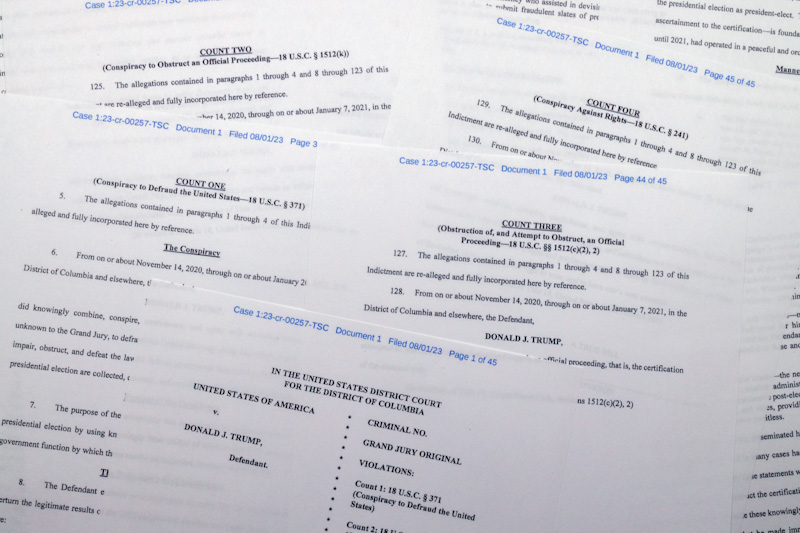SCOTUS won’t block Jan. 6 committee subpoena for GOP official’s phone records; Trump’s own suit is pending
U.S. Supreme Court
SCOTUS won’t block Jan. 6 committee subpoena for GOP official’s phone records; Trump’s own suit is pending
November 14, 2022, 11:46 am CST
Kelli Ward, chair of the Arizona Republican Party, has a news conference in Phoenix in November 2020. Photo by Ross D. Franklin/The Associated Press.
The U.S. Supreme Court on Monday rejected an emergency request to block a congressional subpoena for the phone records of Kelli Ward, chair of the Arizona Republican Party.
The high court’s order allows disclosure of the records to the congressional committee investigating the Jan. 6, 2021, U.S. Capitol attack, report Politico, NBC News, Reuters and the Washington Post.
Justices Samuel Alito and Clarence Thomas would have granted the emergency request to pause the subpoena.
The Supreme Court acted days after former President Donald Trump filed his own lawsuit seeking to block a committee subpoena for his testimony.
The Associated Press and Politico are among the publications covering that suit, filed in federal court Nov. 11 in the Southern District of Florida.
Trump’s suit acknowledges that some former presidents have voluntarily agreed to testify of provide documents in response to congressional subpoenas. But “no president or former president has ever been compelled to do so,” the suit says.
Trump’s lawyer, David A. Warrington, said the subpoena violates the separation of powers.
In her lawsuit, Ward had argued that the subpoena violated her political associational rights under the First Amendment.
The Jan. 6 committee is seeking metadata for calls placed by Ward and her husband, Michael Ward, between Nov. 1, 2020, and Jan. 31, 2021. The information sought includes the time and the duration of incoming and outgoing calls and the numbers involved.
The Wards had signed documents claiming that they were the actual electors in Arizona, despite President Joe Biden’s win in the state.
Justice Elena Kagan had temporarily blocked release of the Wards’ records in October.






